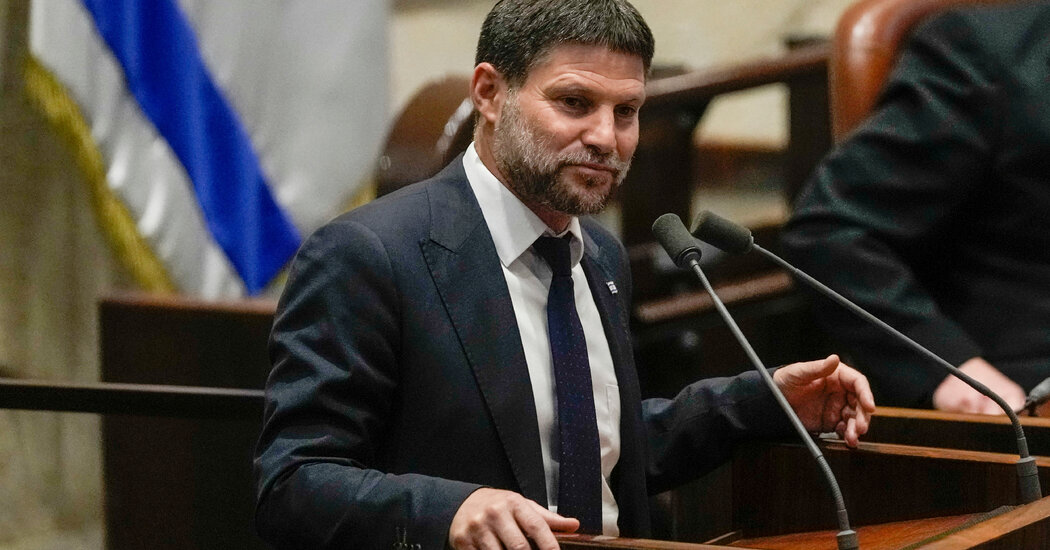The Palestinian National Authority has lurched from crisis to crisis for years, struggling to pay its arrears amid a decline in international aid. Israel has often withheld taxes it collects on behalf of the authority in an effort to penalize its leadership. On other occasions, Israel has sent tens of millions of dollars to keep it afloat.
But many have called the current economic situation in the West Bank the most difficult to date.
After the Hamas-led attack on October 7, tens of thousands of Palestinians who had worked in Israel were no longer allowed to enter, creating mass unemployment almost overnight. Israeli military raids, road closures and tougher checkpoints have further stifled the Palestinian economy.
Before the war, Mahmoud Abu Issa, 53, earned more than $2,000 a month – an enviable salary in the poor West Bank – as a construction worker in Israel. He has been unemployed since Israel banned most Palestinian workers, except for irregular stints as a day laborer for about $10 a day.
His son, who worked with him in Israel, had started building a house before the war began. Because their wages dropped, the house remained unfinished, he said.
“We sit day and night, hoping that something will change,” Abu Issa said. “But there's nothing.”
Under agreements between the two sides, Israel collects and transfers hundreds of millions of dollars in tax revenues to the Palestinian Authority. Smotrich has withheld those funds, which make up the majority of the Palestinian government's budget, exacerbating its fiscal crisis.
As a result, the Palestinian leadership has struggled to pay its employees, who number at least 140,000, according to officials at the PA Ministry of Finance. Many have been receiving only partial salaries for years, often at irregular intervals; last month, most received only 50 percent of their salaries.
Shadi Abu Afifa, a father of four who lives near Hebron, saw his $930 monthly salary as a security officer for the authority cut in half last month. He said his family stopped buying cooking gas and abandoned other modest luxuries, such as home internet, in an effort to save money.
“If the economy improves, we might start to feel some hope again,” Abu Afifa said. “Because right now we are in a bad, suffocating situation: war, unemployment, everything on top of each other.”
U.S. officials have been pressuring the Israeli government to release the funds, fearing that further economic hardship could lead to more violence in the West Bank. National Security Advisor Jake Sullivan called this week for the funds to be released “without further delay.”
Last month, after three European countries announced they would recognize a Palestinian state, Smotrich announced he would not renew the waiver – set to expire on July 1 – that shields Israeli banks from legal liability for working with Palestinian banks.
Without their own currency, Palestinians generally use Israeli shekels. If Palestinian banks want to offer shekel accounts, they must maintain links with Israeli banks and rely on them to process shekel transactions.
Since 2017, the Israeli Ministry of Finance has issued the waiver that compensates Israeli banks, according to Lilach Weissman, a spokesperson for the ministry. If the waiver is not renewed, Israeli banks will likely cut ties with their Palestinian counterparts, banking experts said.
“The consequences would be negative and dangerous for everyone,” said Akram Jerab, chairman of the board of Quds Bank, which has 31 branches in the West Bank.
Last Thursday, at a cabinet meeting that lasted past midnight, Smotrich agreed to temporarily extend the exemption for four months, said Eytan Fuld, the minister’s spokesman. It was unclear what would happen next.
If he ultimately follows through on his threat to let the waiver expire, it could also have economic consequences for Israel, experts said. Palestinian traders would not be able to use banks to pay Israeli suppliers for imported goods. And there would be no way for Palestinians to pay Israel for essentials such as fuel, water and electricity, said Azzam al-Shawwa, a former top Palestinian banking regulator.
“Israel's trade is intertwined with Palestine,” Mr. al-Shawwa said in an interview. “Palestine is a major trader with Israel. Is Smotrich ready to lose it?”
Rawan Sheikh Ahmad contributed to the writing of the report.





